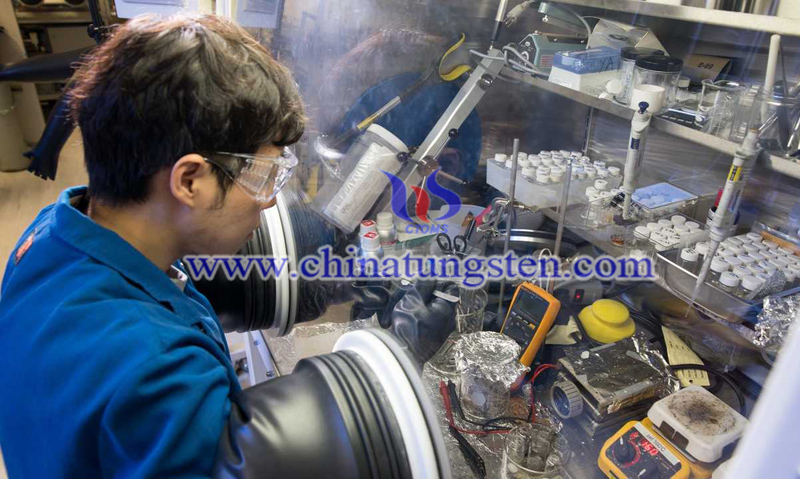IBM's Cobalt-Free Lithium Batteries Use Materials Extracted from Seawater
- Details
- Category: Tungsten's News
- Published on Thursday, 26 December 2019 23:32
Cobalt-free lithium batteries developed by IBM extract substances from seawater to replace heavy metals. In the process of promoting sustainable energy development globally, lithium-ion batteries are regarded as vital and key technology. At the same time as it is widely used in electric vehicles, which will play an important role in reducing greenhouse gas emissions, but they are not yet a perfect solution.
To this end, The IBM Research Battery Lab announced that it has successfully developed new cobalt-free lithium batteries built without heavy metals, instead, with materials that can be extracted from seawater. And from the initial test point of view, there is no compromise in performance.

To move the new battery beyond the IBM Research Battery Lab, the team has partnered with Mercedes-Benz, battery electrolyte supplier Central Glass and battery manufacturer Sidus. Thereby eliminating its dependence on heavy metals such as cobalt. The company did not mention how its new battery was manufactured, only that it was made from "three new and different proprietary materials that have never before been used in records and used in battery manufacturing". Besides, extracting battery components from seawater can also reduce costs, making this new battery not only more beneficial to the environment and humans but also potentially more affordable.
The technological breakthrough was discovered at the IBM Battery Lab, which uses a cathode material that does not contain cobalt and nickel, and a safe liquid electrolyte with a high flash point. This unique combination of cathode and electrolyte demonstrates the ability to suppress metal lithium dendrites during charging, thereby reducing flammability and potentially removing a major disadvantage of using metal lithium as an anode material.

"The goal would be, within a year or so, to have the first working prototype (of the battery)," said Jeff Welser, vice president at the Research. Welser added that the lab may not necessarily end up making a product using the design.
IBM said that the new cobalt-free battery design is better than the current commonly used lithium batteries in terms of cost, charging time, power density, and efficiency. Specifically, in terms of charging, it only takes less than five minutes to reach an 80 percent charge. The battery is also less flammable, and it could be used in aircraft and smart energy grids, as well as electric cars and trucks.
- Tungsten Manufacturer & Supplier, Chinatungsten Online: www.chinatungsten.com
- Tungsten News & Prices of China Tungsten Industry Association: www.ctia.com.cn
- Molybdenum News & Price: news.molybdenum.com.cn
- Tel.: 86 592 5129696; Fax: 86 592 5129797; Email: sales@chinatungsten.com



 sales@chinatungsten.com
sales@chinatungsten.com